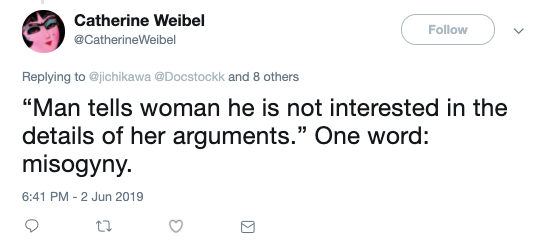Pretty common sense, really.
But that's exactly what a lot of this rhetoric is doing.
That's part of being a good academic citizen.
I'm inspired in significant part by csi-jenkins.tumblr.com/post/905636053…
That doesn't make me an expert on gender, but it does make me an expert on philosophy.
* adults having sex with children
* preferential hiring of men over women
* torture
* slavery
* and more super gross stuff
I don't have to read those works to know they're harmful.
What we're ultimately negotiating is whether trans-exclusion should be beyond the pale.
Thanks for reading, see y'all later.

























